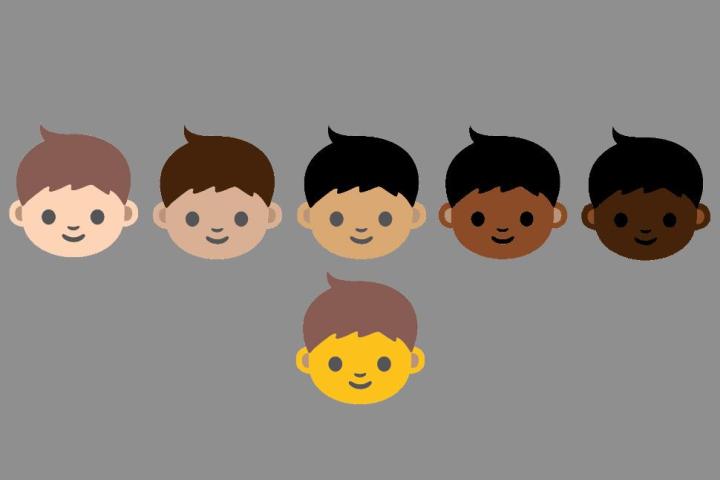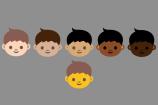
The consortium, a non-profit group that works to develop and promote software internationalization standards for how text and characters are represented on electronic devices, said this week that next year it hoped to offer emoji fans greater choice when it comes to selecting particular characters.
“People all over the world want to have emoji that reflect more human diversity, especially for skin tone,” the consortium wrote on its website this week.
It continued, “The Unicode emoji characters for people and body parts are meant to be generic, yet following the precedents set by the original Japanese carrier images, they are often shown with a light skin tone instead of a more generic (non-human) appearance, such as a yellow/orange color or a silhouette.”
The proposed skin tones are based on the Fitzpatrick scale, a recognised classification schema for human skin color, and would be presented as five color swatches that can be used to modify the appearance of the existing human emoji characters.
To simplify the process, the consortium suggests how a long press on an existing emoji could bring up a mini-palette of various skin tones (below), leaving the user to tap on the desired character.

And yes, the consortium is well aware that now that it’s having a go at tackling racial diversity with emoji, some users are likely to start raising the question of “other types of diversity….different hair styles and color, use of eyeglasses, various kinds of facial hair, different body shapes, different headwear, and so on.”
However, don’t expect any changes along those lines, as the group insists that coming up with an encoding-based mechanism for all types of human appearance is “beyond the scope” of Unicode, though it does suggest some possible solutions for the future.


